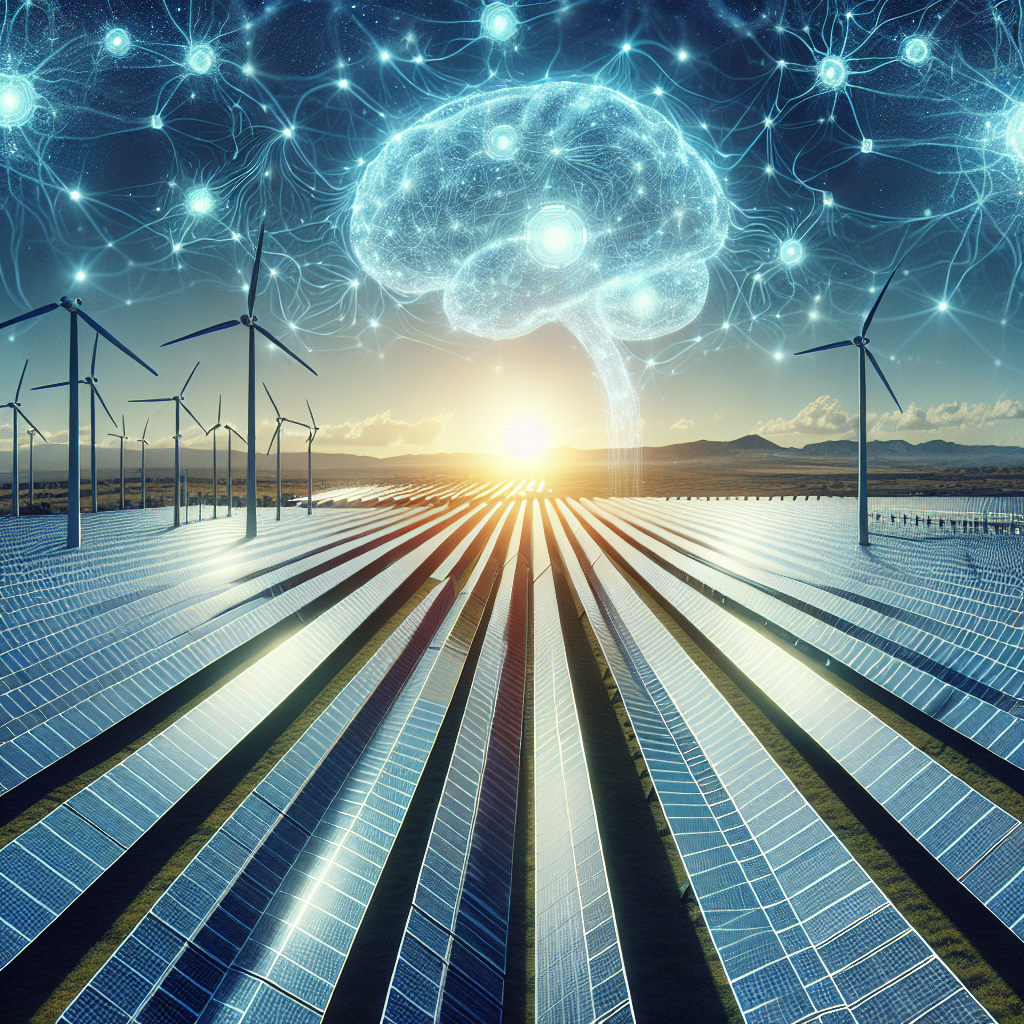In recent years, there has been a growing focus on renewable energy sources as a means to combat climate change and reduce our dependence on fossil fuels. However, one of the challenges facing renewable energy is its intermittent nature, which can make it difficult to predict and manage energy production. This is where artificial intelligence (AI) comes in, offering a powerful tool to improve the efficiency and reliability of renewable energy systems.
AI technologies, such as machine learning and data analytics, can be used to optimize the performance of renewable energy systems in several ways. By analyzing vast amounts of data in real-time, AI can help predict energy production and consumption patterns, optimize energy storage and distribution, and improve overall system efficiency. In this article, we will explore how AI can be leveraged to enhance the efficiency of renewable energy sources and accelerate the transition to a more sustainable energy system.
Predicting Energy Production
One of the key challenges facing renewable energy sources, such as solar and wind power, is their intermittent nature. The amount of energy generated by these sources can vary based on factors like weather conditions, time of day, and season. This variability can make it difficult to predict energy production accurately, leading to inefficiencies in energy distribution and storage.
AI technologies can help address this challenge by analyzing historical data and real-time information to predict energy production more accurately. Machine learning algorithms can be trained on vast amounts of data, such as weather patterns, energy consumption, and system performance, to develop predictive models that can forecast energy production with greater precision. By leveraging AI-powered forecasting tools, energy operators can better anticipate fluctuations in energy production and adjust their systems accordingly to optimize energy distribution and storage.
Optimizing Energy Storage and Distribution
Another way AI can improve renewable energy efficiency is by optimizing energy storage and distribution. Energy storage is crucial for balancing supply and demand in renewable energy systems, as excess energy generated during peak production periods can be stored for later use. AI technologies can help optimize energy storage by analyzing data on energy production, consumption, and storage capacity to determine the most efficient way to store and distribute energy.
For example, AI-powered algorithms can optimize the charging and discharging cycles of energy storage systems to maximize efficiency and minimize energy waste. By analyzing real-time data on energy production and consumption, AI can help energy operators make informed decisions on when to store or release energy to meet demand while minimizing costs and environmental impact. Additionally, AI can help optimize energy distribution by predicting peak demand periods and adjusting energy flow to ensure a reliable and stable energy supply.
Improving System Efficiency
AI can also be used to improve the overall efficiency of renewable energy systems by optimizing system performance and maintenance. By analyzing data on system operations, energy production, and maintenance schedules, AI can identify inefficiencies and potential issues in real-time, allowing energy operators to take proactive measures to address them.
For example, AI-powered algorithms can detect anomalies in energy production or system performance, such as equipment malfunctions or suboptimal operating conditions, and alert operators to take corrective actions. By monitoring system performance and identifying areas for improvement, AI can help optimize energy systems for maximum efficiency and reliability. Additionally, AI can help schedule maintenance tasks more efficiently by predicting equipment failures and recommending preventive maintenance actions to minimize downtime and reduce maintenance costs.
FAQs
Q: How does AI help predict energy production in renewable energy systems?
A: AI technologies, such as machine learning and data analytics, can analyze historical data and real-time information to develop predictive models that forecast energy production more accurately. By analyzing factors like weather patterns, energy consumption, and system performance, AI can help energy operators anticipate fluctuations in energy production and optimize energy distribution and storage accordingly.
Q: How can AI optimize energy storage and distribution in renewable energy systems?
A: AI-powered algorithms can optimize the charging and discharging cycles of energy storage systems to maximize efficiency and minimize energy waste. By analyzing data on energy production, consumption, and storage capacity, AI can determine the most efficient way to store and distribute energy, ensuring a reliable and stable energy supply.
Q: How does AI improve the overall efficiency of renewable energy systems?
A: AI can help improve system efficiency by analyzing data on system operations, energy production, and maintenance schedules to identify inefficiencies and potential issues in real-time. By detecting anomalies in energy production or system performance and recommending preventive maintenance actions, AI can help optimize energy systems for maximum efficiency and reliability.
In conclusion, AI technologies offer a powerful tool to improve the efficiency and reliability of renewable energy systems. By predicting energy production more accurately, optimizing energy storage and distribution, and improving overall system efficiency, AI can help accelerate the transition to a more sustainable energy system. As the demand for renewable energy continues to grow, leveraging AI to enhance the efficiency of renewable energy sources will be crucial in building a more sustainable future for generations to come.

